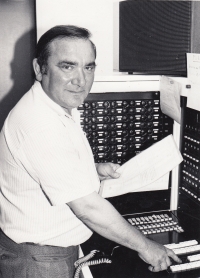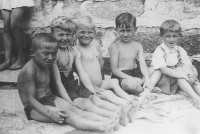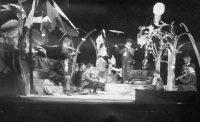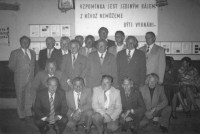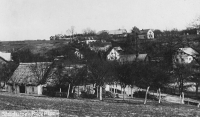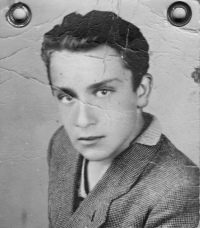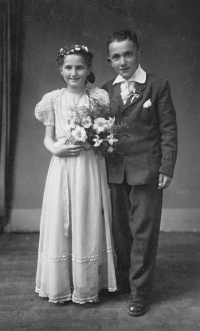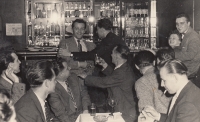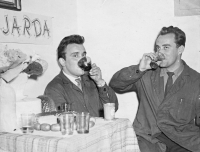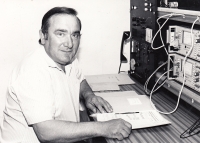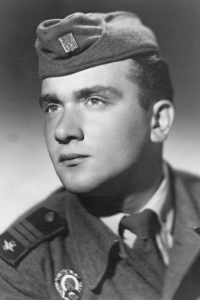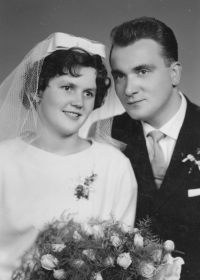Transmitters were his life. He helped spread the news of the occupation

Download image
Ladislav Tomas was born on 20 May 1937 in Studnice near Paceřice in the Turnov region. His father, Ladislav Tomas, was a trained carpenter, but he was mainly engaged in farming and also in jewellery making. His mother Bohuslava Tomasová, née Flanderková, was a housewife. His mother was arrested in 1942 during the period after the assassination of Heydrich and imprisoned for several months for having winter felt boots sent to her sisters and neighbours by a friend from another region. She was even put on death row in Pankrác in Prague due to lack of space. Through a Prague lawyer, Ladislav Růžek, she was eventually allowed to serve her sentence in prison in Liberec. Both parents joined the Communist Party after the war. After the Communists took away their fields and orchard in the mid-1950s, his father left the party. The Communists expelled his mother from the Communist Party after the 1969 background checks because she disagreed with the occupation of Czechoslovakia in 1968. Ladislav Tomas was interested in transmission technology from childhood, for example he made his own crystal radio. In 1952, he started studying at the Higher Technical School of Automotive Engineering in Mladá Boleslav, and after two years he switched to the Secondary Technical School of Electrical Engineering in Prague, where he graduated and passed his qualification exams in 1956. He served his basic two-year military service with the signallers in Slaný, Pardubice and Dašice, where he completed non-commissioned officers’ school. After the war, he joined the Amplification Station 1 of the Long Distance Communications Administration in Liberec as a technician. On 31 January 1963, together with his colleague Stanislav Tomiška, he rescued a television transmitter from the burning mountain chalet on Ještěd dating back to 1907. Thanks to their efforts, the radio communications technicians managed to restore television broadcasting just two weeks later. In August 1968, at the time of the occupation of Liberec by the Warsaw Pact armies led by the Soviet Union, the radio operators also provided Czechoslovak Radio with broadcasts from alternative locations from which the radio carried out broadcasting after the occupation of the building on Vinohradská třída in Prague. Ladislav Tomas also cooperated with the radio studio in Alšova Street in Liberec, where Václav Havel and Jan Tříska prepared their anti-occupation broadcasts. Throughout his professional life, Ladislav Tomas, together with his subordinates, provided long-distance intercity and foreign telephone traffic at the Liberec amplification station. They also provided radio broadcasts, such as concerts, speeches and sports broadcasts. Ladislav Tomas retired in 1997. In 2023 he was living in the Broumovská housing estate in Liberec.
